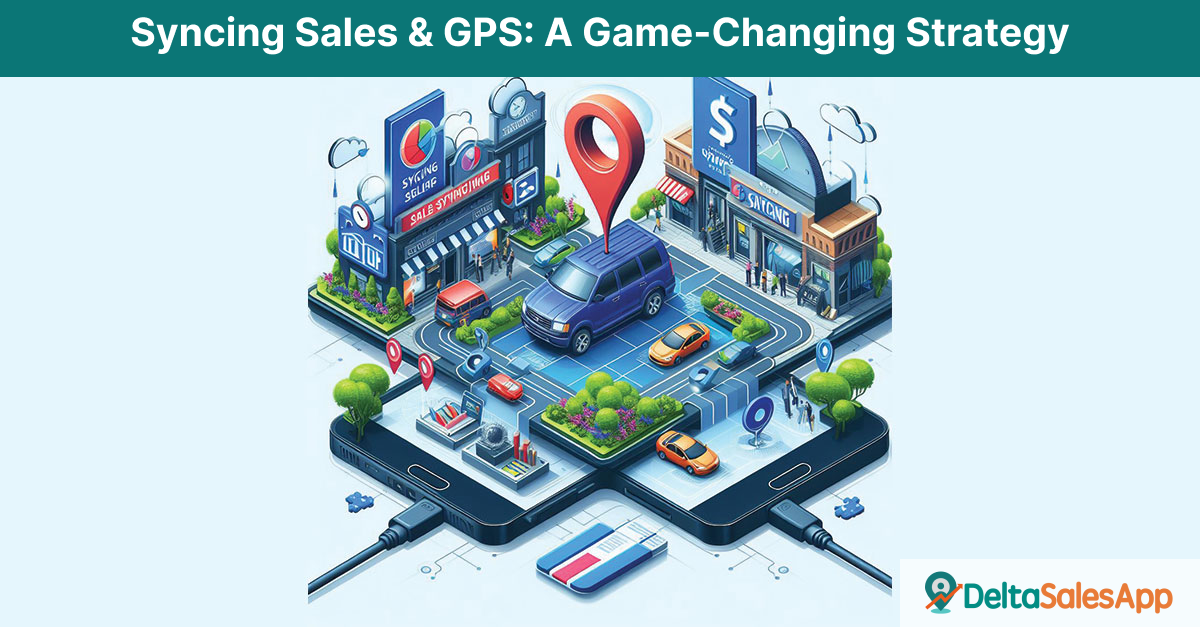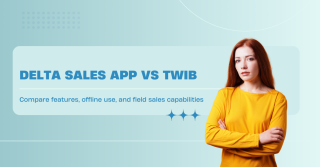Syncing Sales & GPS: A Game-Changing Strategy

In today's hyper-connected world, businesses are constantly seeking innovative ways to streamline operations, enhance efficiency, and boost sales. One such game-changing strategy involves the integration of sales data with GPS technology. By harnessing the power of GPS technology, businesses can unlock a treasure trove of valuable insights that can revolutionize their sales processes and drive bottom-line results. Let's delve deeper into this strategy and explore how it can transform your business.
What are sales and GPS integration?
Sales and GPS integration involves the seamless merging of sales data with GPS technology to optimize sales activities and enhance decision-making processes. This integration allows businesses to track the movement of sales representatives in real-time, analyze their sales performance based on geographical data, and identify areas of opportunity for growth.
How does it work?
Sales and GPS integration work by leveraging GPS-enabled devices such as smartphones or tablets carried by sales representatives. These devices continuously transmit location data, allowing businesses to monitor the exact whereabouts of their sales team at any given time. This real-time location data is then integrated with sales data, such as customer interactions, sales volume, and revenue generated, providing a comprehensive view of sales performance within specific geographic regions.
What are the benefits?
-
Optimized Sales Routes: By analyzing historical GPS data, businesses can identify the most efficient routes for their sales representatives to take, minimizing travel time and maximizing customer visits. This optimization leads to increased productivity and reduced fuel costs.
-
Targeted Sales Strategies: By overlaying sales data with geographical information, businesses can identify high-potential sales territories and allocate resources accordingly. This targeted approach enables sales teams to focus their efforts on areas with the greatest revenue potential, ultimately driving sales growth.
-
Enhanced Customer Insights: By tracking the movement of sales representatives and their interactions with customers, businesses gain valuable insights into customer behavior and preferences. This data can be used to personalize sales efforts, anticipate customer needs, and deliver a superior customer experience.
-
Improved Accountability: Sales and GPS integration promote accountability among sales representatives by providing visibility into their activities and performance. Managers can monitor sales team performance in real-time, identify areas for improvement, and provide targeted coaching and support.
Is it secure?
Security is a top priority when implementing sales and GPS integration. Businesses must ensure that appropriate measures are in place to protect sensitive sales data and comply with data privacy regulations. This includes implementing encryption protocols, access controls, and data anonymization techniques to safeguard customer information and prevent unauthorized access.
Conclusion
Sales and GPS integration offer a powerful strategy for businesses looking to optimize their sales processes, increase productivity, and drive revenue growth. By harnessing the combined power of sales data and GPS technology, businesses can gain valuable insights, streamline operations, and stay ahead of the competition in today's dynamic marketplace.
If you're ready to take your sales strategy to the next level, consider implementing sales and GPS integration and unlocking the full potential of your sales team.
FAQs
Q. Is sales and GPS integration suitable for all types of businesses?
A. Sales and GPS integration can be beneficial for a wide range of businesses, particularly those with field sales teams or mobile sales representatives. Industries such as retail, pharmaceuticals, telecommunications, and logistics can significantly benefit from this integration by optimizing sales routes, targeting high-potential territories, and enhancing customer interactions.
Q. How can businesses ensure data privacy and security when implementing sales and GPS integration?
A. Ensuring data privacy and security is paramount when implementing sales and GPS integration. Businesses should implement robust security measures such as encryption, access controls, and data anonymization to protect sensitive sales data and comply with data privacy regulations.
Q. What are the potential challenges associated with sales and GPS integration?
A. While sales and GPS integration offer numerous benefits, there are potential challenges that businesses may encounter during implementation. One challenge is ensuring seamless integration between sales systems and GPS technology, particularly when dealing with legacy systems or disparate software platforms.








